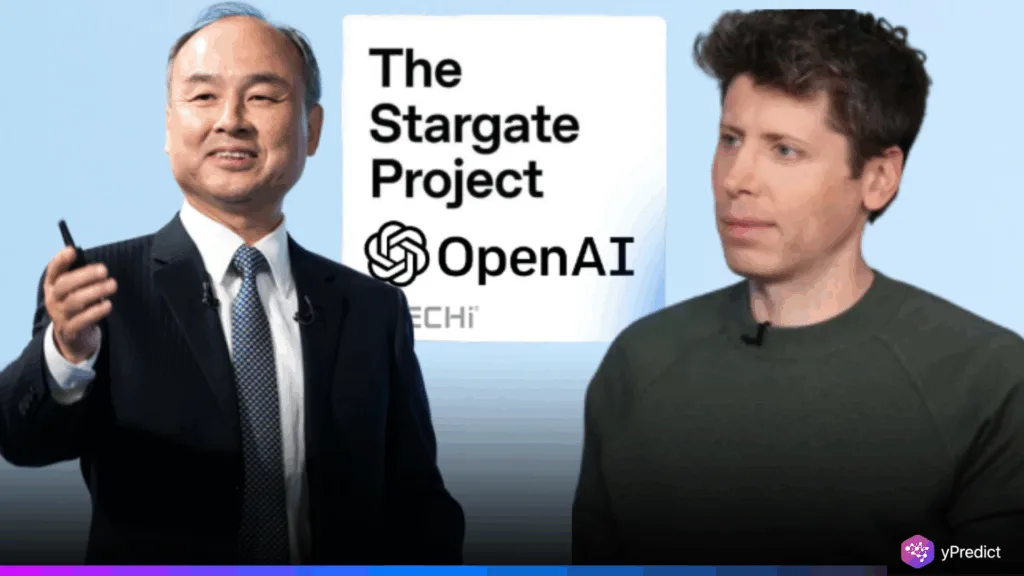
The Stargate Project, an ambitious $500 billion AI infrastructure initiative jointly led by SoftBank and OpenAI, has reportedly hit significant delays. According to a Bloomberg post referencing a July 2025 Wall Street Journal report, internal tensions over data center locations and decision-making control are stalling progress. The project, initially revealed in January 2025, was meant to fast-track U.S. dominance in artificial intelligence but is now tangled in leadership disputes and geopolitical shadows. With Sam Altman of OpenAI reportedly exploring independent deals and SoftBank resisting fragmented execution, the situation underscores deepening friction within one of AI’s most high-profile alliances.
Internal Strains Between SoftBank and OpenAI
Friction between SoftBank and OpenAI appears to center on autonomy and operational priorities. SoftBank, however, reportedly wants centralized coordination to protect its massive capital exposure. This difference has now crystallized around the placement and control of critical data centers. Altman’s push for flexible deployments clashes with SoftBank’s preference for controlled, high-investment hubs.
As a result, the Stargate Project’s rollout remains stuck in negotiation limbo, even though initial funding commitments have already surpassed $100 billion from contributors like Oracle and MGX. Sources close to the project suggest that Altman believes AI growth should not be throttled by rigid infrastructure planning, while SoftBank’s top executives worry about asset fragmentation and operational inefficiency.
Data Center Disputes Stalling Infrastructure
The data center dispute is more than a logistical argument—it’s a strategic divide. Control over these centers determines who holds influence over computer distribution, energy sourcing, and regional partnerships. In the AI race, where latency and scale matter, the location and management of infrastructure can shape long-term dominance. SoftBank, with its strong hardware background and investment-led mindset, prefers fixed supercenter models.
OpenAI, shaped by its research-first philosophy, leans toward distributed systems that can evolve with emerging AI use cases. This divergence has slowed deployments in multiple proposed sites across the U.S., Asia, and the Middle East. Engineers and planners from Oracle and MGX have reportedly grown frustrated by the bureaucratic gridlock, raising concerns that the Stargate Project’s technological promise may remain unrealized if governance issues remain unresolved.
U.S. AI Leadership Goals Under Pressure
When it was funded, the Stargate Project was intended to serve as a counterweight to China’s quick pace of artificial intelligence advancement. At present, however, there are fractures within the project that inhibit that vision. While the geopolitical context, especially in terms of China and its role in global supply chains, makes the project more pressing, all movement remains symbolic at best.
Observers note that the Stargate Project, despite its scale, reflects how major AI alliances can falter without clear operational frameworks. A Council on Foreign Relations study in 2024 had already warned that fragmented governance in AI could slow national competitiveness. The current delays now validate those warnings.
Broader Ramifications for AI Alliances
The Stargate Project is not just a single initiative—it is a litmus test for collaborative AI infrastructure building. If SoftBank and OpenAI are unable to reconcile their issues regarding data centers and operations leadership, the impact of that story may shape what future partnerships like theirs might look like. While neither participant has gone public with an exit from the venture, their misalignment in strategy indicates the difficulty of coordinating AI at scale.
For global investors and governments who pay attention to these sorts of things, an important takeaway is that simply throwing money around will not win the artificial intelligence game. Good governance, aligned strategy, and the flexibility to execute are equally important. At this moment, the Stargate Project becomes a cautionary tale— an ambitious AI dream that may not die from the lack of vision, but from conflicting execution paths.






